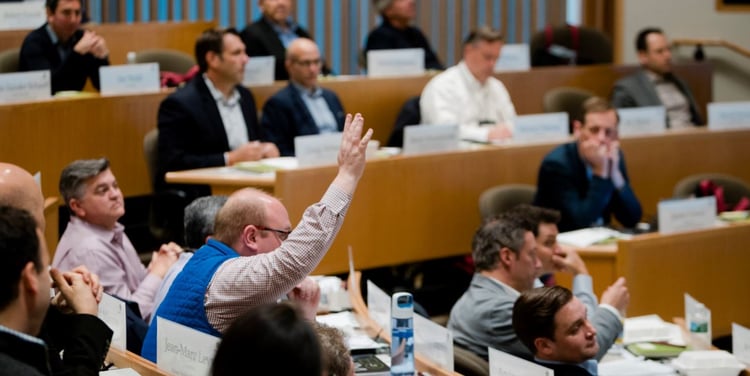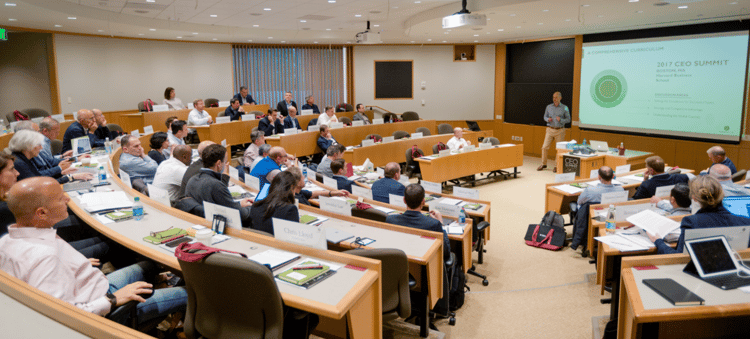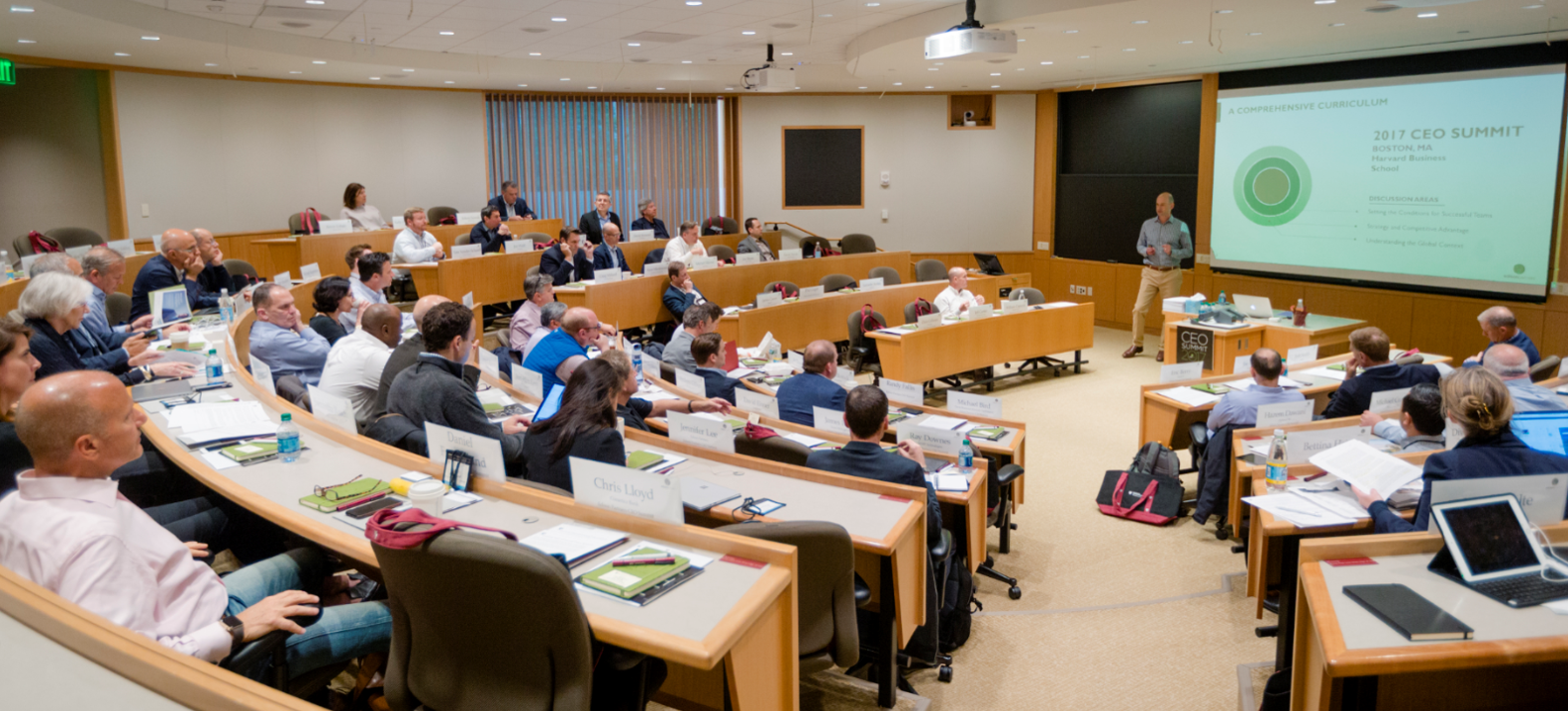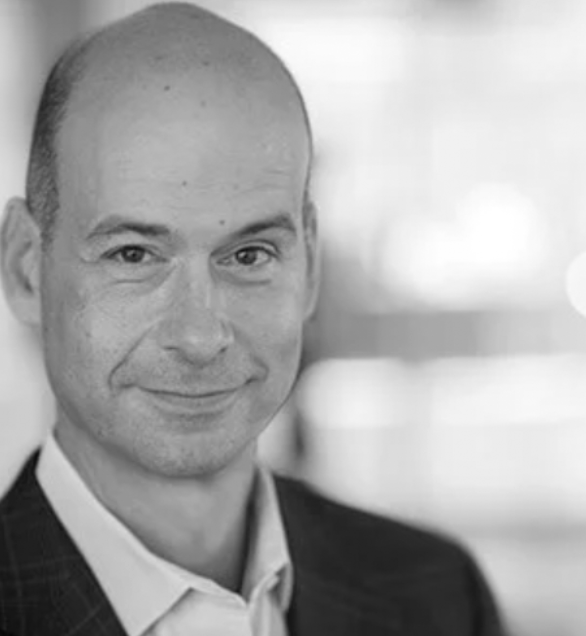“Who would miss your company if it went out of business?”
-Professor Felix Oberholzer-Gee, Harvard Business School
Professor Oberholaer-Gee asked 70 Edison portfolio company CEOs, board directors, and limited partners this exact question and the response from this extremely vocal group:
Stunned silence.
That was the moment I knew Edison Partners 6th annual CEO Summit at Harvard Business School was going to leave a lasting impact. Actually, there were multiple moments throughout the Summit when I felt that way, but it was Felix’s simple yet elegant question that put everyone on notice: Provide tangible value to your employees, customers, and shareholders or your company will die.
As CEO Summit Chair, we decided it was time to take our CEOs back to school, and I believe I can speak for all attendees when I say the HBS Executive Education program provided strategic and actionable curriculum in the setting where many of America’s brightest business leaders honed their skills.

We packed this year's 3-day event with challenging and interactive sessions designed to help us grow as entrepreneurs, executives, and board members. We had three distinguished HBS faculty teach (and these Profs can teach!) through the HBS hallmark case study method, structured to ensure active participation. And because the faculty also authored the cases, we got an insider’s perspective about all aspects of the companies we studied.
As Professors at HBS, Ryan Buell, Felix Oberholzer-Gee, and Rawi Abdelal are obviously experts in their respective fields, but what most pleased me was the engaging and dynamic quality of their respective sessions. Our CEOs were highly focused throughout, taking copious notes, asking insightful questions, and verbally sparring with the Professors and each other.
The curriculum developed for this summit provided a range of thought provoking, actionable strategies for our CEOs to consider as they scale their respective companies. As a former CEO, I have firsthand knowledge of how the day-to-day grind of focusing on the company can sometimes prevent us from thinking about the competitive set, as well as economic and political factors that may impact us.
In order to focus on company, industry, and economy, we took a concentric circle approach whereby we could think outside of our comfort zones, but stay rooted in center—our companies.

In the coming days, some of my colleagues and guest CEOs will provide their views and delve into each of the sessions we explored in detail, but I will first set the table with a high level view of these themes for this summit and why we continue to invest so much in the CEO Summit.
1. Setting the Conditions for Successful Teams
We had the pleasure of learning from Professor Ryan Buell who led off with a session focused on the necessary connection between employers, employees, and customers. We learned that we can set the conditions for team success through a relatively straightforward thought process: a Triangle and three words—Capability, Motivation, and License which have the potential to unlock the shackles that prevent teams from performing at optimal levels and that creates operational transparency in an organization.
2. Strategy and Competitive Advantage
Professor Felix Oberholzer-Gee took us to the next level by focusing on competitive pressures within industries. Hence, the quote at the beginning of this post about who would miss your company. With pricing and margins contracting in so many industries, CEOs must find ways to differentiate and to know where they can extract value—from customers or from suppliers? The Value Stick that Felix illustrated throughout our discussion is in some respects a generalized notion of competition. Similar to our program with Ryan, this one had all of us talking for hours afterward.
3. Understanding the Global Context
The US economy, income inequality, politics, globalization…oh my! Honestly my brain hurt after Professor Rawi Abdelal led us through two sessions. To be clear, his presentation was outstanding and very accessible for those of us who don’t necessarily focus on macroeconomics, globalization, etc.., on a regular basis. The numbers don’t lie—we live in an age of extreme income inequality…we are a generation of debtors…the worldwide political landscape has shifted from the center to the fringes on either side. I could go on and on. Bottom line is that we, as business leaders, really need to understand the macro if we want to unlock value in the micro (our companies).
Our CEOs loved this session as well and were still talking about it when we celebrated at Fenway Park that evening. This illustrates why we continue to invest in our CEOs well after we invest in their companies.

What we invest in are great CEOs and teams that we believe can unlock value through aggressive expansion plans and a take-no-prisoners attitude. It's a phenomenal group and we feel lucky to partner with each and every one of them.
Ultimately, we invest in the jockey not the horse. We take this point very seriously and that’s why we provide continuing education programs like the CEO Summit which allows them to spend time with peers in inspirational settings where they can pick up their heads, focus on strategy, network, and have some fun. Can’t wait for next year!


